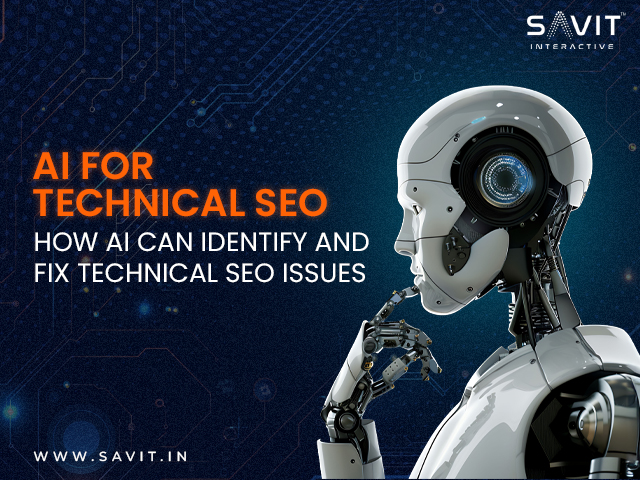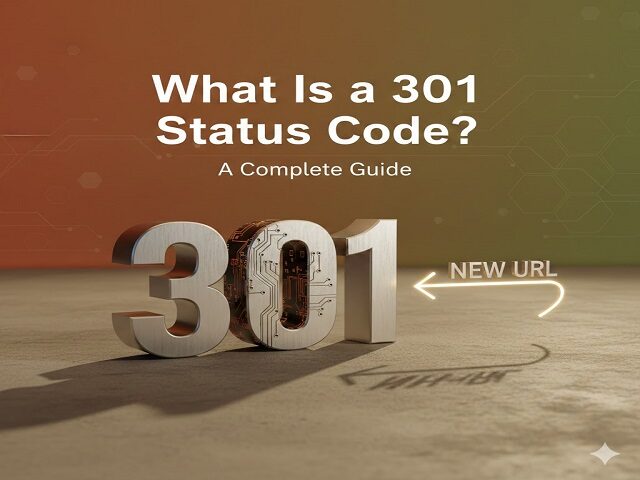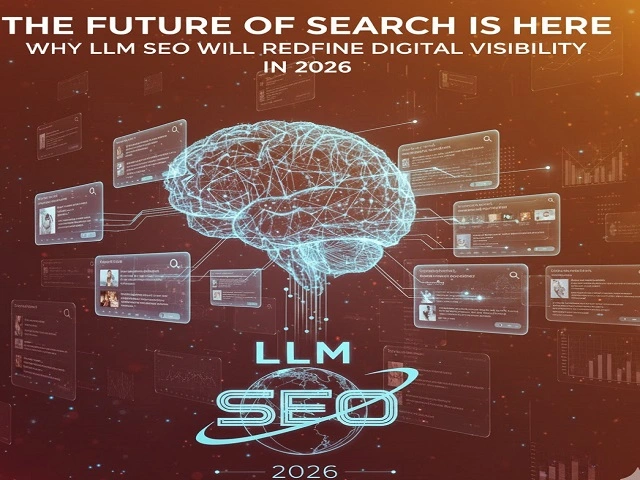The development of artificial intelligence has had a significant impact on traditional SEO (Search Engine Optimization) techniques. It also holds true for technical SEO.
However, how can the integration of technical SEO and AI significantly improve the visibility of websites? You may be familiar with meta tags, robots.txt files, and resolving broken links.
Each of them falls under technical SEO. Artificial intelligence (AI) can be of great assistance in this regard. AI-powered technical SEO implementation can significantly boost a website’s ranking in Search Engine Results Pages (SERPs).
In the modern digital age, being aware of how these technologies work as a team is not only great but necessary.
Read this blog to learn more about how technical SEO and AI complement one another powerfully. Every aspect of this incredible collaboration is carried out in this blog.
Technical SEO: What Is It?
The process of making a website more crawlable and indexable in the search engine is known as technical SEO. Its main goal is to guarantee that search engine crawlers, often known as bots, can easily access, crawl, interpret, and index the website.
Technical SEO addresses the backend components of a website that have an impact on a website’s user experience and search engine ranking.
In contrast, traditional SEO concentrates on content production and on-page optimization. Technical SEO is an essential component of total SEO efforts due to the fact that search engines like Google rank websites based on both technical and content aspects.
Important elements of technical SEO consist of:
Indexing and Crawling: It’s critical to make sure search engine bots can access and navigate the pages on your website. This entails upgrading the robots.txt file on your website and XML sitemaps, as well as making sure there are no crawl issues.
Site architecture: By structuring your website’s content and internal connections, you can make it easier for search engines to index and navigate your information for users.
XML Sitemaps: Search engines can find and index your content more effectively if you create and maintain an XML sitemap.
Schema Markup: By offering rich snippets, which increase click-through rates, using structured data markup can raise search engine ranks.
Website Speed: A website’s ability to load rapidly affects both its search engine ranking and user experience. Websites that load slowly may have higher bounce rates and worse rankings.
Mobile-Friendliness: A mobile-responsive design is essential due to the growing trend of using mobile devices for online surfing. Google search results favor websites that are optimized for mobile devices.
Canonicalization: By defining the preferred version of a page using canonical tags, ranking and indexing concerns related to duplicate content can be avoided.
Resolve Technical Errors: For optimal user experience and search engine optimization, it is essential to locate and resolve technical problems such as broken links, 404 errors, and server faults.
HTTPS & Security: Google favors SSL-certified and secure websites (HTTPS). Making sure a website is secure is crucial for user trust and search engine optimization.
To optimize a website, technical SEO necessitates constant monitoring and updates as search engine algorithms and user behaviours change.
By guaranteeing that search engines can comprehend, index, and rank your content efficiently, it creates the groundwork for successful SEO campaigns.
What effects is AI having on SEO?
Reaching the top of the search engine results page (SERP) ranks as a noteworthy accomplishment. Sustaining search engine rankings is a whole other level of challenge.
Fortunately, SEOs can now gain the necessary knowledge about creating better content and search engine optimization best practices with AI SEO tools.
For instance, AI has placed more emphasis on topic clusters and semantic search, which considers the context around keywords, than concentrating only on specific keywords.
This shift in search favors detailed, keyword-rich, human-like information that is also contextually relevant and comprehensive. For example, if you provide social media scheduling software, you may put a target term on your home page, like “free social media scheduler.”
You use this term on pertinent landing pages, product pages, and home pages. It’s likely that you also target this long-tail term in your Help Centre articles and blog posts.
However, since clusters and semantic keywords are receiving more attention, you should think about developing pillar sites and subtopic pages specifically for the purpose of forming content clusters.
In this particular instance, you may have the following cluster:
- Pillar Page: A published pillar blog post focusing on the primary term “free social media scheduler”.
- Subtopic page: A blog post that has been published and is focused on the semantic term “social media planning.”
- Subtopic page: A published blog post focusing on the semantic keyword “scheduling platforms.”
- Subtopic page: A published blog post focusing on the semantic keyword “automate social media.”
Conversion-focused SEOs also combine sales enablement system data. By using AI-powered SEO techniques, they can more swiftly and simply comprehend how to produce content that can raise visibility, convert visitors into customers, and advance them along the sales funnel.
In actuality, by examining data and comments from virtual sales assistants, SEOs can pinpoint the main concerns and queries prospects have during the sales process.
This knowledge can direct keyword research and content development strategy by assisting SEOs in concentrating on subjects and keywords that directly address problems and offer solutions. SEOs can also benefit from a sales enablement system by learning which content assets convert and generate the best leads.
Would AI work well for technical SEO?
AI may be used to enhance your technical SEO strategy and help you create unique content based on search intent.
AI may assist you in identifying the precise areas of your technological infrastructure that need development by evaluating how well your website is optimized for a great user experience.
Additionally, if this is your first time building a website, employing AI website builders with SEO-friendly templates will help you get started.
How does AI function for technical SEO?
AI is capable of many different tasks to support your technical SEO procedures, such as:
Analyzing the performance of a website: AI systems may evaluate performance indicators to find areas that need work, such as page speed, server response time, and rendering problems.
Finding technical flaws: AI can crawl websites and find errors, including incorrect schema markup, missing meta descriptions and titles, broken internal links, and duplicate content.
Conducting website audits: AI-driven technologies can carry out thorough website audits to assess elements such as mobile friendliness, crawl ability, indexability, and site architecture.
Supporting structured data markup: Artificial intelligence (AI) can be used to find ways to apply structured data markup to improve search engine visibility and search result display.
Generating XML sitemaps automatically: AI can automatically create XML sitemaps, making sure all sites are indexed properly by search engines and that they are updated on a regular basis. AI infrastructure is essential for these AI-driven products and processes to function successfully and efficiently.
Researching keywords: AI systems are capable of examining search trends, traffic, user intent, and competition information to offer recommendations and insights for successful keyword optimization.
Tracking backlinks: AI-powered solutions are capable of monitoring and analyzing backlink profiles to spot questionable or low-quality backlinks and assist in the management of link-building efforts.
Helping with natural language processing: AI-driven technologies can examine and comprehend the context and meaning of information to make recommendations for improving on-page components such as headings, meta tags, and content organization.
Analyzing competitors: AI systems can examine competitor websites to find content gaps and SEO tactics that will help you outrank rivals.
Predicting modifications to search engine algorithms: SEO practitioners can remain ahead of the curve by using artificial intelligence (AI) algorithms to forecast possible changes in search engine algorithms based on previous data and patterns.
How to develop a long-term technical SEO plan powered by AI
Now that we have a firm understanding of the fundamentals, let’s review how you can use AI insights to create better, data-driven decisions that enhance technical SEO performance.
1. Examine and enhance website functionality
Make use of AI technologies that evaluate important performance indicators, like rendering problems, server response times, and page speeds.
For instance, if the analysis indicates that your page loads slowly, AI algorithms may suggest methods to improve loading times, including code optimization, browser caching, or picture compression.
Make use of these insights to enhance the user experience and optimize your website’s search engine.
2. Recognize and fix technical mistakes
Recognize typical technical mistakes, including wrong schema markup, missing meta descriptions and titles, broken internal links, and duplicate content.
AI-powered technologies can scan your website and generate in-depth reports identifying these problems. For example, if the study finds duplicate content, the AI algorithms can recommend canonicalizing URLs or optimizing the internal linking structure to consolidate duplicate versions.
By correcting technical issues, you can make sure your website is in fantastic form for search engines to crawl, promoting improved visibility and ranks.
3. Conduct a thorough examination of your website.
Make a thorough website assessment with AI-powered instruments. These tools examine elements, including mobile friendliness, crawlability, indexability, and site architecture.
For instance, if the study finds problems with the site architecture, AI can recommend fixes like logical URL hierarchies and the development of a clear and easy-to-navigate navigation structure.
You can improve the performance of your website by making data-driven decisions and gaining a greater understanding of its strengths and shortcomings by utilizing AI-driven audits.
4. Make the structured data markup better.
Using AI insights to find pertinent data points that you may mark up to raise your website’s search engine rating and increase visibility.
For example, AI analysis may recommend adding specific schema markup for events, reviews, or items, which can offer more detailed and informative search outcomes.
By heeding AI-generated recommendations, you can provide prospective visitors with useful information, which will increase overall visibility and click-through rates.
5. Generate XML sitemaps automatically
Use AI tools to create XML sitemaps for your website automatically. These tools crawl your website and find every page to ensure your sitemap contains every page.
When you add or remove pages, they also update the sitemap on a regular basis. Automating this procedure may save time and make sure that search engines correctly index every page on your website.
When AI is used for XML sitemap production, better crawl ability and search engine bot discoverability are ensured.
All these show how AI can help in identifying and fixing technical SEO issues quickly, consistently, and at scale.
How AI Identifies Technical SEO Issues
AI leverages machine learning and automation to quickly detect and analyze various technical SEO issues across websites. By crawling pages at scale, AI tools can uncover problems like broken links, duplicate content, slow page speeds, and improper schema markup. These insights are generated in real-time, allowing SEO teams to prioritize fixes more effectively. For businesses focused on technical SEO for ecommerce, AI is especially useful in managing large, complex site structures. Ultimately, AI not only speeds up audits but also ensures that no issue goes unnoticed, making it a valuable asset for maintaining website health and performance.
Will SEO be replaced by AI?
AI won’t replace SEO. However, if AI insights are used to build SEO strategies, how marketers handle on-page and off-page SEO will undoubtedly change.
Though AI insights are more useful for content-heavy SEO tasks like ideation for blog posts, semantic search, and creating content, you can also utilize them for technical SEO to enhance user experience. These days, optimizing for SEO is made simple with the help of an AI writing generation application.
However, the essential point is SEO tactics still require a genuine human touch.
Content strategies are made as effective as they are by human wisdom, which includes comprehension of user purpose, use of conversational language, personal expertise, and narrative.
That said, how can AI help in identifying and fixing technical SEO issues that even seasoned SEOs might overlook? The answer lies in its ability to process vast amounts of data and spot trends instantly.
In summary
Great SEO strategies are ultimately made by applying the insights we gain from these tools, not by the tools themselves.
If you are keen to enhance your SEO tactics, don’t undervalue the potential of AI data to improve your technical SEO approach.
A paradigm shift in digital marketing may result from the combination of technical SEO and AI. Understanding and meeting the changing needs of people is equally as important as search engine optimization.
Businesses can create a web presence that not only ranks highly but also engages, informs, and delights users, setting new benchmarks for online excellence by fusing the analytical power of AI with the technical skill of SEO.
Savit Interactive’s team of SEO professionals combines advanced qualifications with hands-on experience using AI tools. They use these insights to create customized SEO strategies that will accelerate your business’s growth.
If you are searching for an organic growth partner with knowledge in technical SEO for ecommerce and other areas, Savit is here to help. Set up a strategy session with us to find out how AI can help in identifying and fixing technical SEO issues.



